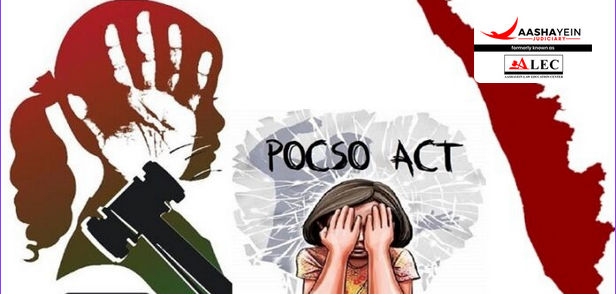Bench CJI DY Chandrachud and Justice JB Pardiwala
The Supreme Court in Case Just rights for children alliance Vs S. Harish, a bench comprising CJI DY Chandrachud and Justice JB Pardiwala addressed critical issues concerning the possession and consumption of child sexual exploitative and abuse material (CSEAM) under Indian law. The Court's judgment clarified the legal interpretations of relevant provisions in the Protection of Children from Sexual Offences (POCSO) Act, 2012, and the Information Technology (IT) Act, 2000, emphasizing the stringent measures against child exploitation in the digital age.
Facts:
In January 2020, the Additional Deputy Commissioner of Police (Crime against Women and Children) in Chennai received a Cyber Tipline Report from the National Crime Records Bureau (NCRB) indicating that S. Harish was a regular consumer of child pornography. Subsequent investigation led to the registration of FIR under Section 67B of the IT Act and Section 14(1) of the POCSO Act. Forensic analysis of Harish's mobile phone revealed over 100 pornographic files, including two videos depicting child abuse. The chargesheet was later amended to include Section 15(1) of the POCSO Act. Harish petitioned the Madras High Court to quash the charges, and the High Court ruled in his favor, stating that mere possession of such material without evidence of distribution was not an offense under the cited sections. This decision prompted the appellants, Just Rights for Children Alliance, to seek clarification from the Supreme Court.
You can also read the Blog by visiting [Blog]
For more information, visit [Aashayein Enquiry Section]
Issues:
1. Does mere possession of child pornographic material constitute an offense, or is intent to distribute required?
2. Is viewing, possessing, or storing child pornographic material punishable under this section without evidence of distribution?
3. When can the statutory presumption of a culpable mental state be invoked?
4. Can the High Court invoke the statutory presumption under Section 30 during a quashing petition under Section 482 of the CrPC?
Contentions of the Petitioners:
The appellants argued that the High Court erred in its interpretation of Sections 15 and 67B, contending that mere possession of child pornographic material should be punishable, irrespective of intent to distribute. They emphasized that allowing individuals to possess such material, even privately, undermines the objectives of the POCSO and IT Acts and perpetuates child exploitation.
Contentions of the Respondent:
Harish contended that mere possession or viewing of child pornographic material, without evidence of distribution or transmission, does not constitute an offense under the relevant sections of the POCSO and IT Acts. He maintained that there was no intent to distribute the material, and thus, the charges were unfounded.
Court's Analysis and Conclusions:
The Supreme Court overturned the High Court's decision, the Court held that mere possession of child pornographic material, even without intent to distribute, constitutes an offense. The Act penalizes viewing, possessing, or storing such material, emphasizing strict liability to combat child exploitation.
The Court clarified that this section addresses the publishing or transmission of child pornography and supplements the POCSO Act to provide better protection to children. The Court also noted that the statutory presumption of a culpable mental state can only be invoked by the Special Court at the trial stage, not during a quashing petition under Section 482 of the CrPC. 4. The Court recommended replacing the term "child pornography" with "child sexual exploitative and abuse material" (CSEAM) to more accurately reflect the gravity of such offenses.
Relevant Case Laws:
Independent Thought v. Union of India (2017): This case emphasized the need for stringent measures to protect children from sexual exploitation.
Attorney General for India v. Satish (2021): The Court underscored the importance of interpreting laws in a manner that upholds the rights and dignity of children.
Conclusion:
The Supreme Court's judgment in Just Rights for Children Alliance vs. S. Harish reinforces India's commitment to combating child sexual exploitation by clarifying the legal interpretations of the POCSO and IT Acts. The ruling underscores that mere possession of child sexual exploitative and abuse material is a punishable offense, thereby strengthening the legal framework to protect children in the digital era.

